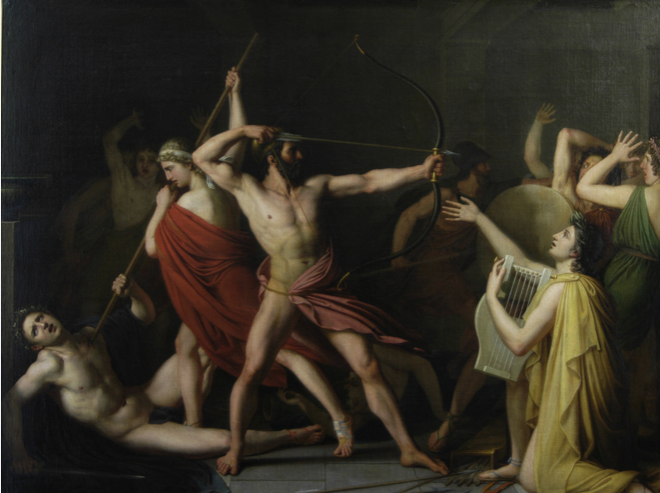Three Things About Joyce's "Ulysses"

I recently finished James Joyce's third and penultimate novel, Ulysses, which has been called both his masterwork and one of the greatest works of all time. It tells the story of one day in the life of two Irish men, the middle-aged Leopold Bloom and the young Stephen Dedalus, as they meet and interact with one another. Known to be difficult and eccentric, I was surprised to find I enjoyed the book, despite its many complexities. Here are three things about Ulysses:
- Martin Amis wrote about Ulysses in the titular essay in his seminal The War Against Cliche. He included it under his "Great Books" heading, yet couldn't resist finding some flaws with it. He described it as "not reader-friendly," called Joyce a "writer's writer...auto-friendly, James Joyce-friendly." He refers to the meeting between Bloom and Dedalus in "Ithaca" as the novel's "only event" and calls the book as a whole a "hundred-page anticlimax." He then concedes that Joyce is a genius. That is about the appropriate progression of reading Ulysses.
- The first publishers of Ulysses, Jane Jeap and Margaret Anderson of The Little Review, were arrested when they released it in snippets in 1918. The New York Times - then one of the nation's more liberal newspapers - applauded the censorship. It wasn't published again until 1922, and then only in France; it wasn't available in England or the United States until 1934, after a landmark court case determined that it was not, in fact, obscene. Now, Ulysses reads as remarkably mild, yet it was profane for its time (there's a brief masturbation scene, an allusion to a lesbian relationship etc.). It was corrected and reset in 1961, and has been read widely since.
- Ulysses is a notoriously impenetrable book. It includes long stream-of consciousness passages, rife with Irish mythology, spiritual symbolism and often lacking any punctuation. The perspective frequently changes mid-paragraph, with little or no warning. A solid quarter of the novel is a fever-dream scene set in a Red Light district and written in play format, complete with stage directions and including such characters as "The Whores" and "The Sluts." There are sentences in Latin and Greek, with no translations. As opposed to many other well-known difficult novels, with which I was sometimes able to understand the words but not fully grasp the weight of the story, I felt the opposite; I understood what Joyce was getting at, but in terms of individual sentences, I was occasionally stranded. Yet Ulysses is great, despite its many confusions. It is one of the most profound and emotional novels I've read, though the setting and plot is ordinary and mundane, essentially the story of an Irish man running errands. Its beauty is indescribable, yet impossible to discount.
